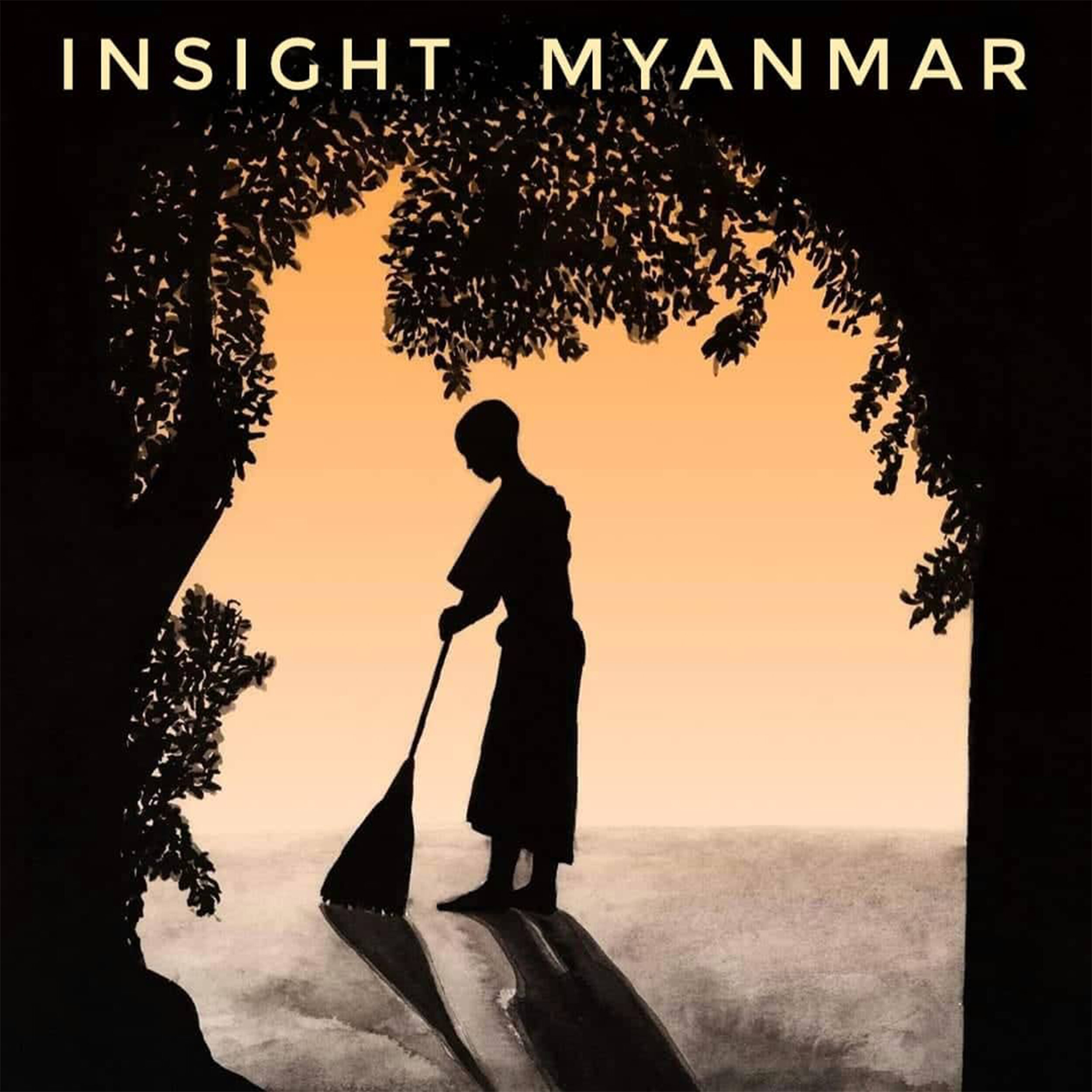Episode #57: Act with Courage, Pray with Faith
“One thing for sure is that the evil things… they cannot go on too long,” Doh Say tells us. “Today or tomorrow, but things will happen. It’s the same thing with the truth as well—it can never be hidden.”
With this simple phrase, the Karenni leader, Doh Say, offers us not only a profound insight into his spiritual faith, but also a practical analysis as to why he believes that the recent military takeover in Myanmar is bound to fail before long.
Doh Say’s life work has been leading to this moment. He became involved with the Free Burma Rangers through his longtime friendship with David Eubank, the founder of the group, and this connection has transformed his life in more ways than one. The Rangers are a humanitarian service group dedicated to supporting the country’ ethnic minorities in their long-running struggle against the depredations and brutality of the military, whose anti-tribal campaigns have by now been going on for seventy years. Doh Say has spent over 20 years training leaders of the country’s various ethnic groups in intensive courses in the jungle, around developing leadership capacity, and strengthening civil society and inter-ethnic unity. He has carried out a variety of often dangerous missions and operations, many of which brought him into close encounters with the Tatmadaw.
Today, his training camps are filling up not with representatives from the neighboring tribes, as is usual, but with Bamar youths arriving from the cities, who have decided to willingly face danger and discomfort in order to learn the skills necessary to support the undoing of the military terror organization. These days, Doh Say marvels at the “innocent” faces now enrolling in his camp, and admits he is “falling in love” with this new class of pupils, as he sees how their dedication is matched by courage.
Through Doh Say’s association with the Free Burma Rangers, love is not something he is uncomfortable speaking about. For as much as he has learned from David about military tactics, he has grown even more spiritually through that relationship, noting that before their meeting in 1997, “I didn’t really know God and Jesus.” He adds, “David increased my spiritual strength. I used to like to call myself a traditional Christian. I was Christian just because my parents were Christian.”
Developing a deeper faith in God eventually challenged Doh Say to move beyond his comfort zone. As he says, “According to human nature, when it is easy, almost everybody can do it! But when difficult things or very dangerous things come, then nobody wants to do it.” Doh Say admits that certain missions terrified him from the outset, given the danger and hardship he would endure, but his faith carried him through, as did the power of regular prayer. During one operation, he recalls how he simply prayed that the Burmese soldiers would find it in their hearts not to harm the local villagers.
Finding love for, and daring to forgive, an enemy that has inflicted decades of terror on local communities is no easy thing. He mentions how in his home village, every household needed to dig a hole by their home in order to jump in for safety when bombs and mortars were launched by the Burmese Army. The sound of gunfire and accounts of rape were not uncommon, and his cousin’s house was once destroyed during an attack. And yet, despite all this, the Free Burma Rangers still encourage defections and welcome soldiers who abandon their post.
Towards the end of the interview, David Eubank himself joins us. He shares a poignant story of a defecting soldier who joined their group with a particularly dark secret from his army days: murdering a pregnant woman. He didn’t think that the community would ever forgive such an atrocious act, and so kept it inside, until he began, in David words, “listening to words about God's love and His forgiveness. He said, ‘I just couldn't hold it in my heart and I confessed it and the people here didn't kill me! Now I want to be a follower of Jesus because I feel His love and forgiveness.’ So we baptized them right here. And you should see the smile on this guy's face… he’s a different person!” David closes by recalling an incident where he accidentally ran into General Aung Min, and how he invited his adversary, a Buddhist, to join him in a Christian prayer.
David also shares some background about Doh Say, that the latter’s modesty precluded from mentioning himself. “He raised our three kids since they were very small. He has risked his life on numerous times to protect them, in every kind of situation, from active war all the way down to being dragged by horses, whatever it took! He broke his hand and his fingers trying to disengage my son's leg as he was being dragged as a four-year old under a horse in a middle of a mission. He’s an amazing guy, and helps my wife on the kids’ programs.”
David’s daughter, Suzanne, also makes an appearance at the start of the episode, reading a poem she wrote, called “Those Brilliant Eyes.” It is about the sacrifices that Karen people have made to protect their community, and was written after she met an old soldier who was still defending his village even after having lost an arm.
Doh Say sees this present moment as a time when goodness and unity can truly prevail. He wants to “send a message” to all communities to embrace forgiveness. This is not an easy task, and he knows it: “It’s difficult, because we're talking about forgiveness here, and it is so difficult, especially those whose relatives or sisters, brothers, or mother got killed. But this is one of the ways to have a long-lasting solution for our country.”




